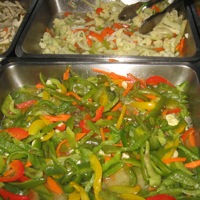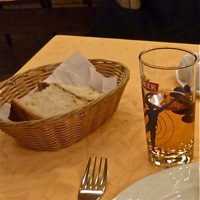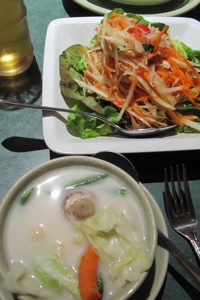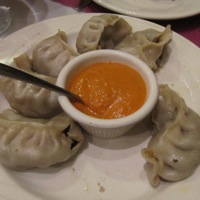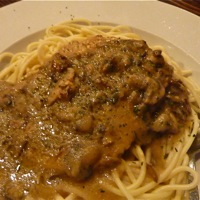OBJECTIVES By the end of this session you will be able to:
|
Tasks for this session
Before you come to class for our second class meeting:
Read
Read pages 1-43 in the textbook (first half of section one “Inside Story” including all of chapter 1 “What is Community Organizing Anyway?” and the first half of chapter 2 “Step by Step—Building a Community Organization” in Building Powerful Community Organizations by Michael Jacoby Brown (2006) 1h 20 minutes
Read the texts of four speeches by Martin Luther King, Jr. Or, watch the videos if you have the time!
Read the text of the speech “The Other America” delivered by Dr. King on April 14, 1967. Transcript is also available here. If you want to listen to the speech instead of reading it (or in addition to reading it), it is available online at YouTube.
Read the text of the speech “The Three Evils of Society” delivered by Dr. King on August 31, 1967. Transcript is also available as a PDF. You might like an interesting blog entry about it. I have made the transcript available in Word and Pages format as well.
Read the “Walk Together, Children” speech (given March 18, 1968). The text available from this class web page. He gave a similar speech a couple weeks later at the National Cathedral in Washington, DC on the 31st of March. Related to this, you might be interested in Adam Clayton Powell, Jr., a figure who played a significant role in the Civil Rights Movement (some would argue, his contributions were mixed; partly helpful and partly destructive).
Read or listen to King’s final speech; his “I have been to the Mountaintop” speech (given on April 3, 1968). Text available from American Rhetoric website and this class web page.
Read the syllabus, (30 minutes).
Total reading time: 4 hours
Activity One
Watch this video on YouTube about the Water Protectors and their protest against a pipeline. This will require about 50 minutes. You need to watch this to answer discussion question 1-5)
You could also search for additional newer updates about Standing Rock, and I want you to watch videos on the Knowing Better channel as well (for discussion question 1-6). (The 14 minute one, and the 9-minute one).
You can also search for more recent updates about the Dakota Access Pipeline and Standing Rock.
Activity Two
There are three exercises in Building Powerful Community Organizations that I want you to do. Bring your work on these to class, because we will discuss this stuff in the second meeting.
Do the vision exercise on page 29. “Putting Your Vision Into Words”.
Do the “Finding the Stories that Guide You” exercise on pages 40-41.
Do the “Looking into Yourself is the First Step of a Good Leader” exercise on pages 42-43.
Activity Three
Go into Canvas, log in, and respond to the six discussion questions for session 1.
These are:
DQ 1-1:
Check in for the semester. Remind us of your name, perhaps share a photograph if you don't already have a Canvas icon (easy to upload one in settings, by the way), and tell us about: 1) how your progress in the social work program is going; 2) how you are coping with life; 3) any highlights or significant events that have happened to you recently; 4) a reminder of where it is that you are, geographically speaking, and perhaps some details about your living arrangements (disclose only what you are comfortable or willing to share about your relationship status, pets, children, parents, siblings, etc.). Socializing is an important part of establishing a community in this course, and the more we feel like a community, the better the learning we can expect from each other.
DQ 1-2:
After you have read the course syllabus and thought about what you will be doing in this class, post your reaction here. How are you feeling about this course, and what are your thoughts about it. What do you want to learn in this course, and what do you want to get out of it? What are you going to do in this course to enhance your learning and succeed?
Macro_Practice_Syllabus_SWK433_FA2020-1.docx
DQ 1-3:
Share a photograph of yourself and/or photographs that would help us understand you. Help us interpret the photograph(s). What are we looking at in the photograph(s)? In what circumstances was/were the photograph(s) taken? What can we know about you by studying the photograph? I believe everyone in the class is sighted, so you you may assume everyone can see the images you share.
DQ 1-4:
The semester begins with an assignment to watch, listen to, or read four speeches made by Martin Luther King.
Please choose one passage from one of the four assigned speeches given by Dr. King (Links to an external site.).
1) Paraphrase or interpret the passage in your own words.
2) Explain why that particular passage is significant, powerful, or remarkable to you. Why did you choose it?
3) Offer an evaluation, an implication, or a question related to the passage you chose to share with the class.
If you post in this thread, please comment on some passages shared by your classmates as well as posting your own. It's important to have interactions with your classmates in online sessions.
DQ 1-5:
View the assigned documentary about the Standing Rock Reservation:
movement to protect the water near the Standing Rock Reservation
And, after you see it, share some of your reactions.
Perhaps you could tell us what you heard about this protest movement before, and what you had known or thought about it.
You could tell us if you have heard about any enduring work being done as a consequence of this movement? Search online and see if you can find out about any follow-up, and share what you find.
You might say something about what you found inspiring and worthwhile in the Standing Rock protest. What seemed effective or useful in what you know about Standing Rock.
DQ 1-6:
After you have posted in Discussion Question 1-5 (Standing Rock documentary), consider this documentary:
https://www.youtube.com/watch?v=CBElQt0PXtg
and the follow-up:
https://www.youtube.com/watch?v=sb_ruHpZUjs
And, you can search for any other more recent stories (Links to an external site.) about the Standing Rock movement for protecting water and the aftermath:
Now, comment about what this perspective and recent news does to your perception of the movement.
Interesting Stuff To Explore
You will want to spend some time each week looking for articles or examples of actions realted to macro practice and community organizing. I provide my students with the following list of sources. As you go to the more extreme sources, the quality of the journalism declines, in general. That is, you get more editorial writing in the description of events, and you get a higher risk of reporting fake news (Truthdig is guilty of this on the radical end of the spectrum, and several of the “neoconservative and reactionary” sources are frequently guilty of it. Nevertheless, you should read from all the political spectrums, and remember that macro practice and community organizing goes on within all ideologies. In this class we are learning about skills and techniques that are, to some extent, ideologically neutral.
Radical news organizations and sources of opinion.
Liberal news organizations and sources of opinion.
Center
on Budget and Policy Priorities
Canadian Centre for Policy Alternatives
Neoliberal sources
Moderate, non-partisan, and technocratic sources
Conservative sources
The American Enterprise Institute
The American Conservative Union
Neoconservative sources
National
Center for Policy Analysis
Reactionary sources
American
Society for the Defense of Tradition, Family and Property
Libertarian and anarcho-syndicalist sources
Green or Self-Reliance sources
Grassroots Economic Organizing
One other possible source of interest for you to explore this week is some of the reporting on the American election of 2016, which was an astonishing election. The way various authors addressed the results of this election offers an interesting view of how ideology and cognitive bias may have played a role in much of the journalism covering the election in 2016. I recommend the following pieces of reportage and commentary from 2016 and 2017:
Rick Perlstein’s essay, “Peter’s Choice” from the January/February 2017 issue of Mother Jones.
David Wong’s “How Half of America Lost Its F**king Mind” essay in the October 12, 2016 Cracked.
Forsetti’s Justice had an interesting point in the November 22, 2016 AlterNet. “An Insider's View: The Dark Rigidity of Fundamentalist Rural America”
Alec MacGillis and ProPublica had a lengthy article about interest in poor white Americans in the September 2016 issue of The Atlantic Monthly. “The Original Underclass”.
Conner Lynch wrote a typical harsh criticism of the Democrats (similar to many other such articles) in Salon on November 19, 2016: “Neoliberalism’s epic fail: The reaction to Hillary Clinton’s loss exposed the impotent elitism of liberalism”
On November 25, 2016 NPR reporter Steve Inskeep interviewed Mark Lilla, one of many scholars and politicians who cautioned the Democrats about the liabilities their party would face if they continued to emphasize identity politics. “Columbia Professor Says Democrats Need To Move Beyond Identity Politics”
Come to the next class ready.
Bring your answers for the three exercises you have done from Brown's book.
Come ready to discuss the techniques of Martin Luther King’s rhetoric, and offer your reactions and analysis of his speeches.
Come with your choice of which of the group experiential learning projects you want to do this semester.
Come with the content of the first 43 pages of your text (Building Powerful Community Organizations) fresh in your mind. We will be discussing it.














